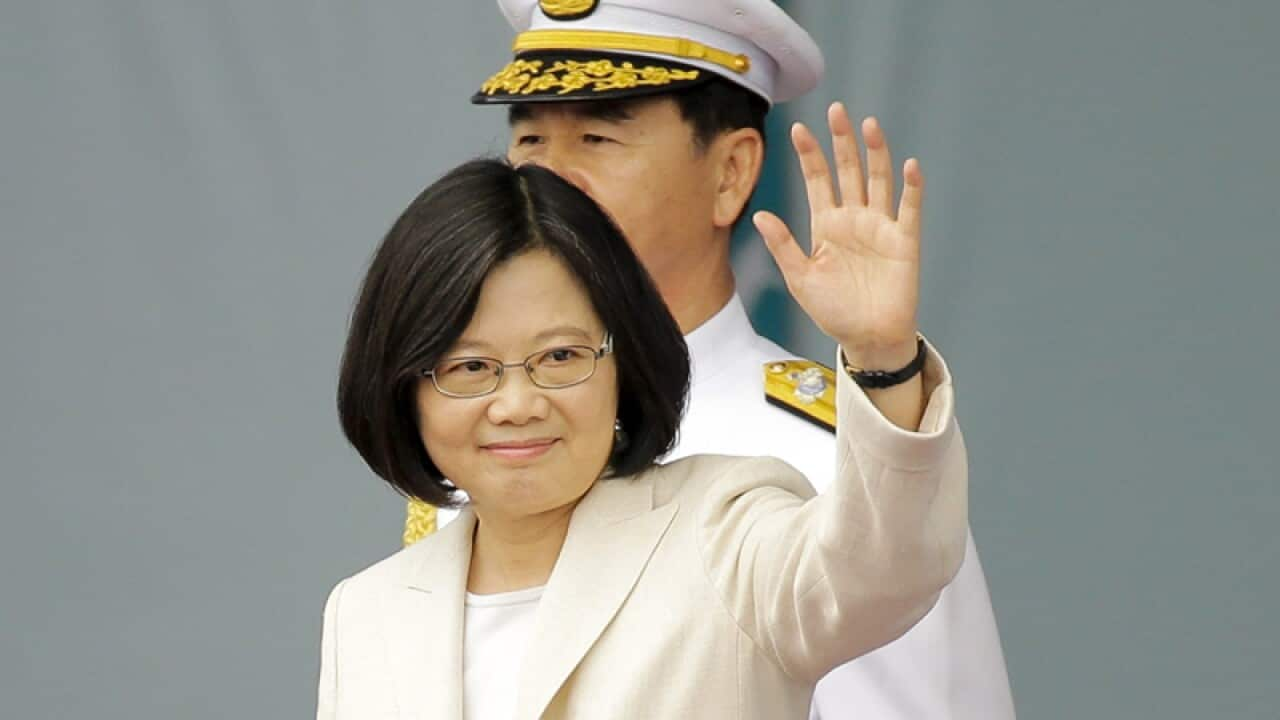Taiwan's new President, Tsai Ing-wen, has omitted mentioning the one-China policy in her inaugural address in a move likely to anger Beijing, which claims the self-governing island as its own territory.
Taiwan's first female president assumes office with the benefit of an unprecedented parliamentary majority for her party, the Democratic Progressive Party (DPP), after eight years of government led by the China-friendly Nationalist Party.
Tsai said in her speech on Friday that she respected the "joint acknowledgments and understandings" reached between the sides at a landmark 1992 meeting seen by China as underpinning all subsequent contacts and agreements.
However, Tsai made no explicit mention of the concept that Taiwan is a part of China, which Beijing says is crucial to the entire relationship.
Tsai called for Taipei and Beijing to "set aside the baggage of history, and engage in positive dialogue, for the benefit of the people on both sides."
She said her administration would "work to maintain peace and stability" in relations between the sides.
However, she added that Taiwan's democratic system and the will of its 23 million people must be respected in the course of cross-strait dialogue.
The government of Tsai's predecessor Ma Ying-jeou repeatedly endorsed the one-China principle and so-called "'92 consensus."
During its eight years in power, Ma's government reached a series of economic and civil agreements significantly increasing interactions between the two sides.
China maintains that Taiwan must unify with the mainland eventually, by force if necessary.
However, Taiwanese public opinion is strongly against any sort of political union between the sides, instead favouring the status of de facto independence and robust social and economic interactions.
Chinese President Xi Jinping has said the issue of unification cannot be put off indefinitely and China's military has in recent days staged saber-rattling war games along the coastline facing Taiwan.









